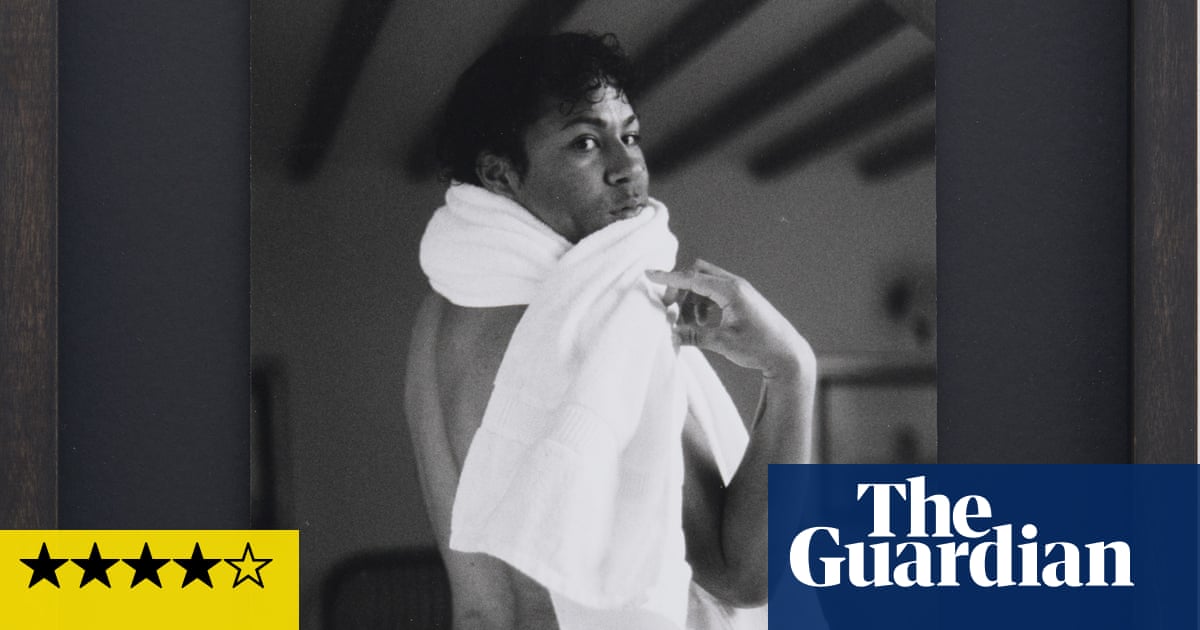A new documentary celebrating the life and legacy of the late singer-songwriter Jeff Buckley premiered to an emotional crowd – including his mother and former bandmates – at the Sundance film festival.
Met with a standing ovation and plenty of tears, It’s Never Over, Jeff Buckley delves into the troubadour’s influences, career and personal relationships cut short by his accidental drowning in Memphis’s Wolf River in May 1997, at the age of 30. Directed by Amy Berg, the 106-minute documentary includes numerous snapshots from Buckley’s many notebooks as well as a trove of childhood photos, archival recordings and interviews with those closest to him, who remember a sensitive and voraciously curious musical talent.
“He drank up the world like a sponge,” says Rebecca Moore, Buckley’s first girlfriend in New York and entree to the East Village art scene in the 1990s, says in the film. As another former girlfriend, musician Joan Wasser, puts it: “He heard the whole of his person in the music.”
Berg, whose prior documentaries include Janis: Little Girl Blue (on Joplin, another icon departed too soon), The Case Against Adnan Syed and Phoenix Rising, worked on the Buckley project for 15 years, as a longtime fan since the release of his seminal debut album – and only complete studio release – Grace, in 1994. Berg spent a decade attempting to secure the rights from the Buckley estate, plus another five in production. “To me, this is a love story about one of my favorite artists, told through the people he loved,” she said while introducing the film in Park City on Friday evening.

Berg focused particularly on the women in his life, including Moore and Wasser as well as his mother, Mary Guibert. “Jeff was such a feminist, and I just felt that telling his story through his love stories, which don’t just include women … I did feel that that perspective, to set it up that way, would be true to Jeff,” she said during a Q&A following the premiere.
The film, executive produced by longtime fan Brad Pitt, attests to Buckley’s fanatic interest in music at an early age; Guibert, the child of Panamanian immigrants to Anaheim, California, who had Buckley at 17, recalls that she first heard him sing while he was still in a bassinet, harmonizing with the radio. His father, avant garde folk rocker Tim Buckley, left when he was six months old.
It’s Never Over evinces Buckley’s fraught relationship with his famous father, with whom he shared a striking resemblance and a four-octave, dextrous voice, yet barely knew. Buckley spent just a few days with him before Tim died at age 28 from a heroin overdose; the young musician was not mentioned in Tim’s many obituaries, yet first gained attention for his talent at a starry 1991 tribute concert in New York.
The comparisons to Tim – which, given his early death, continue to the persist, though multiple close friends remind that Buckley was not an addict and only had one beer in his system when he drowned – irked the singer throughout his career. Asked by an interviewer what he inherited from his father, Buckley visibly bristles before answering: “People who remember my father. Next question.”
As the film illustrates, Buckley’s musical influences were ardent and varied, from Judy Garland to Led Zeppelin, Nina Simone to Nusrat Fateh Ali Khan, Soundgarden to Bill Evans and Shostakovich. Moore, his first girlfriend in New York, and others recall how Buckley’s eclectic taste melded with the eccentric and experimental East Village art scene in the 1990s, leading to a residency at a small cafe, Sin-é, where Buckley would riff and mostly play covers. Word spread quickly, especially once he began performing original music; a record label bidding war ensued. He signed with Columbia, the same label that signed another downtown upstart, Bob Dylan, three decades prior.
It’s Never Over surveys the making of Grace, now widely acclaimed though it performed moderately in the US at the time, as well as his continual discomfort with fame, which impeded his creative process – “Without ordinary life, there is no art,” he says in archival voiceover. Even with commercial success, “that really insecure person was always there”, says Moore.

The pressure to produce a second album was intense, both from himself and from his record label. Several film participants say the stress contributed to his self-diagnosed manic-depressive disorder, which worsened during his late 20s and influenced his move to Memphis.
While numerous loved ones attest to Buckley’s dark moments, they also recall a lighthearted, witty, fun-loving and open soul. His sensitivity, recalls Wasser, “wasn’t crushed like some other men’s had been”.
His death at age 30, just as recording on his second album was set to begin in earnest, left behind a trove of unfinished recordings, a substantial debt to his record company and a few poignant voicemails to loved ones that are played in the film, leading to much sniffling in the Utah crowd. It also left behind the question of how to handle a posthumous career, incalculable broken hearts and an open-ended legacy still in flux. Since his death, eight live albums and multiple compilation albums have been released; Buckley’s transcendent cover of Leonard Cohen’s Hallelujah reached No 1 on the Billboard charts in 2008. New listeners born after his death are now discovering Grace on TikTok, ensuring Buckley’s virtuosic singing and poetic vision carry on.
With the film, “I was trying to understand and articulate why I love him so much”, said Berg. But as she noted: “There just aren’t words to explain Jeff Buckley.”
-
It’s Never Over, Jeff Buckley is screening at the Sundance film festival and is seeking distribution

.png) 3 months ago
41
3 months ago
41













































